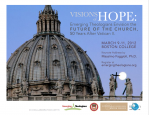The “comfortably numb” posture of many a pastor in the West has become a commonplace, aided and abetted by congregations who want to have confirmed what they already believe and who want their “prophets” fit for the Rotary or the Chamber of Commerce and who either can’t see or can’t say what they see.
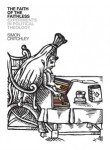
What is really at stake in this book are the differences, and similarities, between a faithlessness that disguises some form of commitment, and a faithfulness that is also more modest in its claims and cautious in working out its implications and practices. If this is the case, then the question, for me, becomes that of the nature and extent of the differences between these two forms of faith. What are the differences between (Critchley’s) faith of the faithless and the less strident forms of the faith of the faithful?
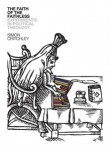
In Simon Critchley’s Wildean confraternity or consorority of the faithless, faith is a commitment, a proclamation of fidelity to an infinite ethical demand which enacts a new form of subjectivity. As such, faith is not related to belief in the existence of God but to an experience that is shared by agnostics, atheists and theists alike. Faith, we might say, is a/theistic, cutting across such distinctions.
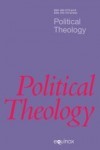
The editors of Political Theology are pleased to announce that the latest issue is now available on the web. Issue 13.1 (January 2012) features a guest editorial by Gerald J. Beyer of St Joseph’s University, Philadelphia who looks at the connections between today’s Occupy Wall Street movement and Poland’s Solidarity trade union movement of the early 1980s, and points to what this new activist turn on issues of social justice could signal for American political life.
The editorial and the reviews section are – as always – open access. The issue also carries articles by Andrew Brower Latz, Thomas A. James, Joseph Ballan, Kristen Tobey and Patrik Hagman.
This is a schism. Just because it is being orchestrated by smart, tall-steeple pastors who are our friends and evangelical theologians whom we have all respected doesn’t make it any less of one.
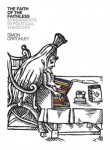
Religious truth is like troth, the experience of fidelity where one is affianced and then betrothed. What is true, then, is an experience of faith, and this is as true for agnostics and atheists as it is for theists. Those who cannot believe still require religious truth and a framework of ritual in which they can believe. At the core of Wilde’s remark is the seemingly contradictory idea of the faith of the faithless and the belief of unbelievers, a faith which does not give up on the idea of truth, but transfigures its meaning.
In an age when nothing is sacred nothing is more difficult to understand than violations of sacred space. Yet that’s precisely what Mark demands of us in his account of Jesus’ first public action, an exorcism in the synagogue.
From the moment Jesus sets foot in the religious and political center of Capernaum, he is engaged in a contest with the scribes over authority concerning that space itself and all that it represents. It’s clear from the beginning that his audacious move catches the attention of everyone. The people notice: “They were astounded at his teaching, for he taught them as one having authority, and not as the scribes” (1:22).
Personal control over one’s body is an essential pre-condition of ethical behavior, and reproduction is one of the most important and private aspects of bodily function any person has.
